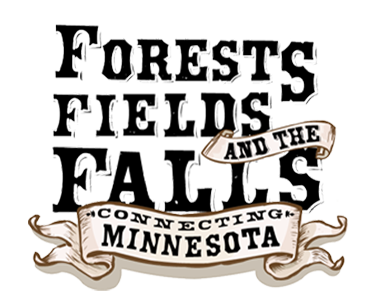Glossary
adulterations (noun): Something fake that is being presented as pure, but has actually had something else added to it.
article (noun): An object.
brisk (adjective): Lively, full of activity.
bushels (noun): A measure that contains eight gallons.
calamity (noun): An event resulting in great loss.
cant hook (noun): Tool used to grip and roll logs.
carriage (noun): A part of the machinary that wheeled the log forward toward the saw.
catwalk (noun): An elevated walkway.
chiefly (adverb): Mainly, or almost entirely.
churned (verb): Agitated the cream rapidly and repetitively with a rocking motion to make butter.
claim (noun): A demand of ownership for previously unowned land (e.g. in the gold rush, oil rush).
coaxed (verb): Persuaded.
commenced (verb): Began, started.
commercial (adjective): Of or pertaining to commerce or business.
conditions (noun): Situation or state of being. In this case, the farming conditions refers to the success of farmers who were now able to make more money from their wheat.
contents (noun): The flour which is contained within it.
creep (verb): To move slowly with the abdomen close to the ground, crawl.
crooks (noun): A person who steals, lies, cheats, or does other dishonest or illegal things.
delicate (adjective): Easily damaged or requiring careful handling.
demand (noun): A need or request.
deserted (adjective): Abandoned.
double bitted axe (noun): An axe that had two sharp edges for chopping.
drive (noun): An act of moving logs forward to be captured.
endowed (adjective): To be furnished with something naturally.
enterprising (adjective): Being smart about business deals.
excepting (preposition): With the exception of.
exhausted (adjective): Depleted; used up.
feat (noun): A relatively rare or difficult accomplishment.
fire-barn (noun): Fire station where fire engines are kept.
frauds (noun): Someone using a false identity.
harness (verb): To place a harness on animals; to tie up or restrain.
heap (noun): A pile.
hearty (adjective): Exhibiting strength; sound; healthy; firm; not weak.
homestead (noun): A house together with surrounding land and buildings, especially on a farm.
ignited (verb): Lit on fire.
immense (adjective): Gigantic, very large.
invigorating (adjective): Giving strength or energy.
lame (adjective): Moving with pain or difficulty on account of injury or sickness.
landing (noun): A place on a shoreline where a boat lands.
mill hands (noun): The workers in a mill.
narrow-gauge trucks (noun): Railroad tracks that were close together.
nozzles (noun): Short tubes, usually tapering, at the end of a hose.
nuisance (noun): A minor annoyance or bother.
obliterated (verb): Wiped out, or destroyed completely.
outlet (noun): A river that runs out of a lake.
poured (verb): Flowed like a stream.
powerhouse (noun): Any source of power, energy, or strength.
printing press (noun): A mechanical device used for printing text or images repeatedly.
pulsates (verb): Vibrates or beats rhythmically.
regarded (verb): Looked at with respect and admiration.
rollways (noun): A path where logs were rolled into the river.
rubble (noun): The broken remains.
salt pork (noun): Pork cured in salt; white bacon.
save (conjunction): Except for.
sawyer (noun): One who saws timber, especially in a sawpit.
shams (noun): Something fake, not real.
shanty (noun): A roughly-built hut or cabin.
shotgun (noun): The front passenger seat in a vehicle, next to the driver; so called because the position of the shotgun-armed guard on a horse-drawn stage-coach, wagon train, or gold transport was next to the driver on a forward-mounted bench seat.
skimmed milk (verb): Removed the cream from the milk.
sluiceways (noun): A man-made channel designed to redirect excess water.
sod house (noun): A house made from the top layer of soil which is filled with the roots of grass.
staple (noun): A basic or essential supply.
subsided (verb): Worn off.
tap (verb): To deplete.
threshed (adjective): Separated the grain from the straw or husks(chaff) by mechanical beating, with a flail or machinery.
throbbed (verb): To pulse with a steady rhythm.
thrumming (noun): The sound or action of something that hums or vibrates.
timber (noun): Trees in a forest regarded as a source of wood.
towering (adjective): Very tall.
yield (noun): A product; the quantity of something produced.
Citation
Standard citation for all glossary terms: Wiktionary, (accessed 2016).
© (2016) Minnesota Historical Society
If any modifications were made to this definition, these changes are released under CC-BY-SA. Permission is granted to copy, distribute and/or modify this definition under the terms of the GNU Free Documentation License, Version 1.3 or any later version published by the Free Software Foundation; with no Invariant Sections, no Front-Cover Texts, and no Back-Cover Texts.

